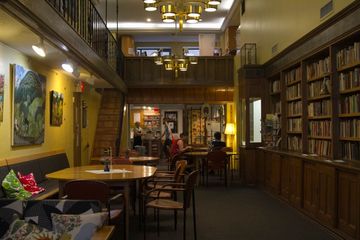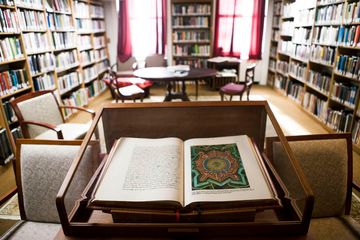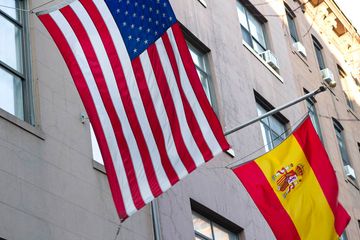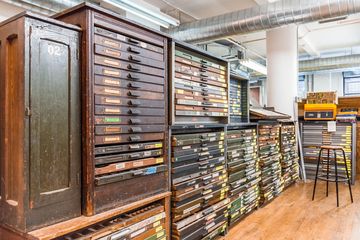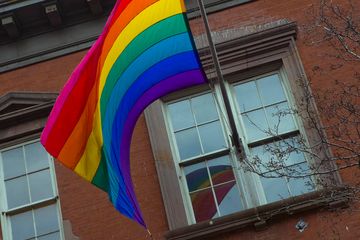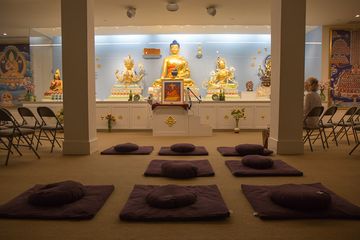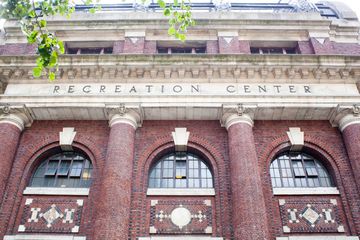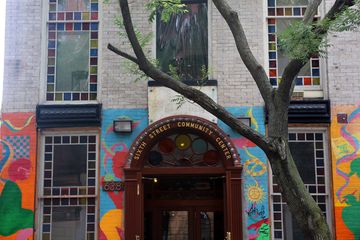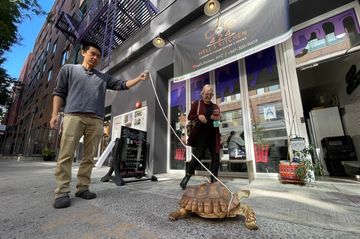Where can you find tech startups, senior and youth programming, an authentic Jamaican cafe, and racing turtles — all in one place? The answer is the Prime Produce on W54th Street in Hell’s Kitchen, a multidisciplinary space where creatives, community leaders, educators and entrepreneurs come together to grow a New York City where passion projects and people thrive. A sprawling, three-story building that includes a performance space, recording studio, technology library, coding spaces, a beetle sanctuary, rooftop garden and conference rooms, Prime Produce is a membership-based grassroots co-working collective as well as a 501(c)3 nonprofit incubator for many member-led projects such as PreProbono, a fellowship program for underrepresented students interested in going to law school, Emergent Works, an organization providing digital literacy and technical education to justice-impacted communities, Seeds to Soil, an urban ecology collective and GROW Externships, a community committed to creating greater accessibility in environmental science careers. For collective members, the shared space fosters collaboration between organizations, and sometimes even new initiatives and projects born out of the relational community, said Jerone Hsu, one of Prime Produce's founding constituents. The collective’s ethos is to take care of its members, organizations and collaborations like a living, breathing thing, he added, referencing the values in Prime Produce Limited’s mission statement: “Love demonstrated through action; not only organically cultivated (like produce), but achieved at the pinnacle of (prime) and simultaneously discovered at the root of (primary) human experience. The nourishment and stewardship of our communities through practices of intentional service. ” “We’re all on the same team, ” said Jerone as he showed us around the collective’s range of multi-use spaces. “A lot of very interesting collaborations come out of being here. What happens when you have a librarian that is helping out at the turtle race? Or a video media artist engaging with someone that they might not otherwise have met on the nonprofit side? We’re all about the relational approach to supporting projects. ” It’s a collision of collaborations that Jerone didn’t expect when he filed the original nonprofit paperwork for Prime Produce from his Columbia University dorm room in 2007. At that point, Jerone, his brother Percy, and a group of friends were looking for ways to “create opportunities to get people to engage and make tomorrow arguably less shitty, ” said Jerone. The first answer? “We were offering whatever we knew how to do — which was mostly throwing parties, ” he laughed. The group organized open benefits — a turnkey event service to fundraise for a wide variety of organizations. “We’d have a couple hundred people all come out for a huge party, and every organization that participated got 100% of the proceeds from the tickets that were sold in that organization's name, ” said Jerone. The model worked so well that the group eventually decided to look for a space of their own, where they could expand their event reach as well as work on new projects together. After breaking ground on the space at W54th Street in 2013 and a long renovation process, they opened their doors in 2018. “We had a couple of good years, ” said Jerone. Then the pandemic shut down in-person collaboration. Prime Produce prevailed however, maintaining a remote community with initiatives like distributing 1x1 foot garden box plots to members. As New York began to reopen, so too did other new relationships. “Chef Nicola [of the collective’s in-house public restaurant and caterer, Cafe 424] was in our GROW Externships program — that’s how we got to know her and decided to work together, ” said Jerone. While some members relocated during the pandemic, new members have also joined. “A lot of the other social-impact co-working spaces had to shutter, ” he added, “if you're looking for a co-working space that is social impact focused and cooperatively governed, this is one of the few games left in town. ” Despite the challenges of the pandemic, the collective is busier than ever, hosting everything from semi-regular noodle dinners to comedy shows, senior-focused concerts and yes, turtle races. They hope to grow the garden of community and collaboration that is Prime Produce. “We don’t treat it as an industrial thing, ” said Jerone as we walked through a senior-caregiver Rodgers and Hammerstein concert. “We care for this collective like a living thing. ”
